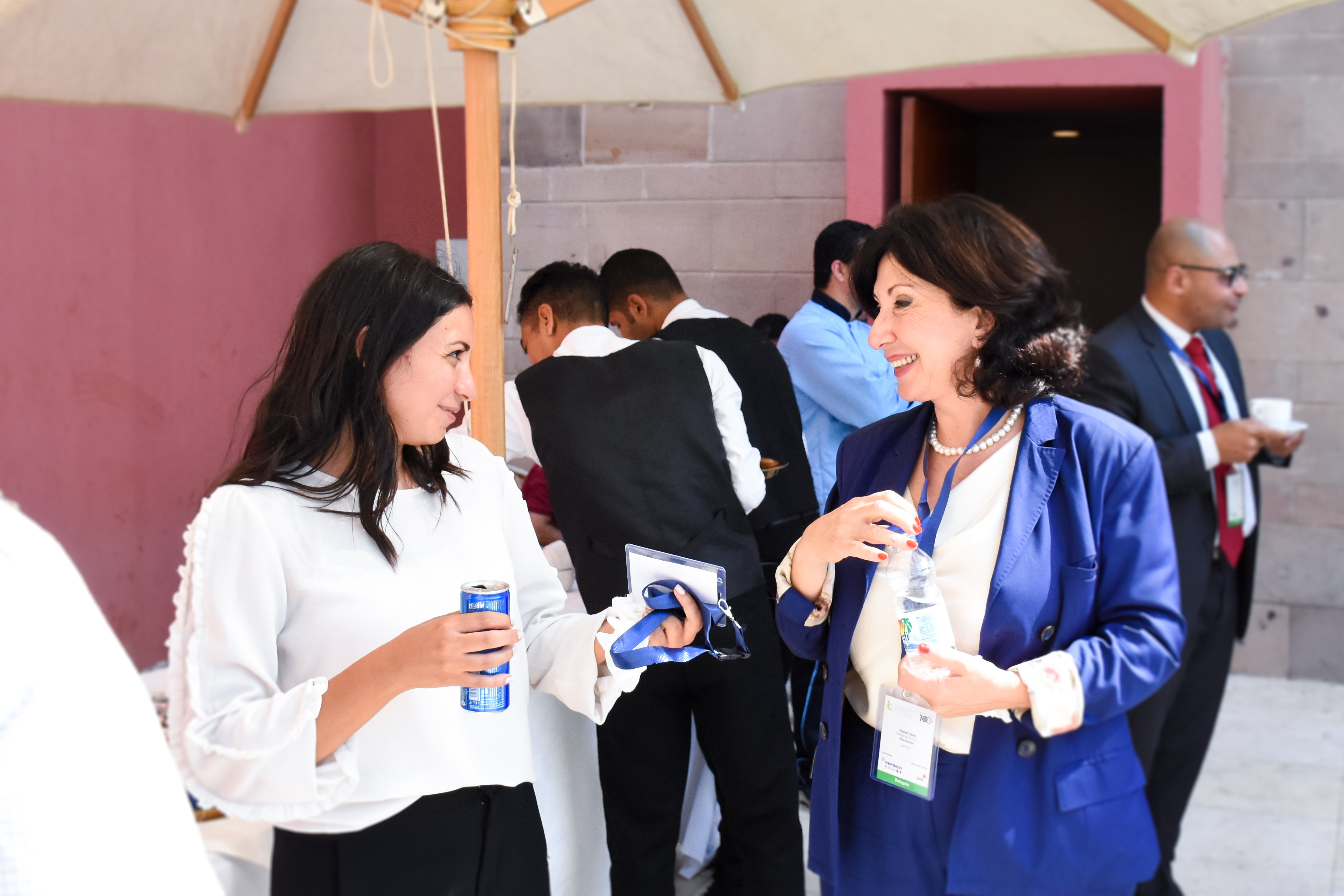By: The Caravan Crew
Extra Reporting by Nariman Ouda
Christine Lagarde. Theresa May. Margaret Chan.
These women overcame numerous challenges and sexist workplace environments to become prime minister, head of the International Monetary Fund, and director of the World Health Organization.
On September 17, the Arab International Women’s Forum (AIWF) held a conference at Moataz Al Alfi Hall to discuss challenges Arab women face in the work field and how they can overcome gender bias.
The conference drew women working in a variety of MENA-based institutions who shared their experiences.
“I remember very distinctly being invited to a conference here in Cairo as a young woman at work in British Airways and there were 300 men and I was the only woman, it was traumatizing,” said Jane Valls, Executive Director at Gulf Cooperation Council Board Directors Institute.
AIWF founder Haifa Al Kaylani said that women are a part of every career globally and for any workplace to develop, both men and women need to work together.
Nevertheless, women around the world – especially Arab women – still face many challenges in climbing the ladder and securing senior positions.
Jamal Haidar, assistant professor at the department of economics, cited the example of the World Bank, which was established in 1944; their first female chief economist was only hired in 2018.
In the past decade, there has been momentum for more women to become CEOs, directors and heads of organizations. But it has been an uphill battle.
Lagarde, for example, was the first female finance minister of France, later becoming the first head of the IMF and more recently, appointed the first female president of the European Central Bank.
“Success is not just an end in itself, but it creates opportunities and challenges that women can face because the working environment is so dynamic,” Al Kaylani told The Caravan.
“Women’s success depends on enhancing your skills, hard working and practice for the field that you want to work in, in order to be able to find good opportunities later, ” Kaylani said.
Nermine Abdel Fatah, Managing Director of PR agency Excellent Communications D&N, says that obstacles women face largely arise when men start feeling threatened by women’s achievements and the second they start acquiring positions of power.
“The culture itself is an obstacle that women can face, men are an obstacle and children are also an obstacle,” elaborated Abdel Fatah, one of Egypt’s 50 Most Influential Women of 2017.
Moreover , these obstacles created gender unfairness worldwide.
“There is a stereotype against women and lower employment probability,” Haidar said.
Haidar also said that, generally, any economy will lose half of its potential if women are not employed.
“When I look at PepsiCo I see [working women] as the designated new engine of growth, the rising stars of our economy,” said Mohamed Shelbaya, CEO of PepsiCo Egypt.
